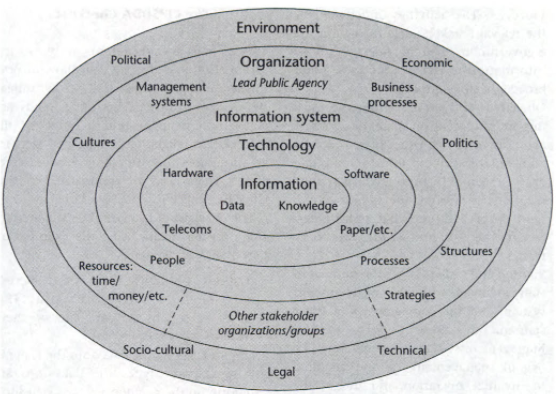Understanding Open Data As An Integral Part Of eGovernment Systems: A Perspective From Jakarta
Jakarta, Indonesia
eGovernment systems are information systems handling data to deliver information for decision making and transactions. Workstreams in Open (Government) Data, either data publication on portals or a more specific use case like an e-contracting system fit in this category too.
Open Data refers to data that is available online for anyone to use freely, reuse and redistribute. In practice, Open Data manifests itself as data management processes: a government proactively collects, stores, processes, and publishes public data on regular basis, usually on data portals. But unlike the conventional way of government information publishing, Open Data emphasises open data formats and licences. When used effectively, Open Data is believed to drive social change ranging from increasing transparency and accountability in governments to improving public service delivery to strengthening citizens’ participation and engagement.
Various stakeholders including donors, UN agencies and international organisations have supported governments around the world in opening up their data. However, the promised benefits of Open Data remain still untapped to a large extent. The mantra ‘build it and they will come’ turned out to be more problematic than expected. Similar to the ICT4D field where information technology was once the sole focus (and not the people), realising the impacts of Open Data takes more than publishing data on the government portals.
High-income countries, with their robust eGovernment systems, are likely to be successful in implementing Open Data. In the Open Data Barometer 2017 measuring governments on readiness, implementation and impact of Open Data, five countries including the UK, Canada, France, the US, and South Korea lead the global ranking. According to the UN E-Government Survey 2016, all of these countries retain a ‘very high’ E-Government Development Index score.
This doesn’t mean Open Data in middle- and low-income countries with shortages in technical and human resources are doomed to fail. Instead, government should see this as an opportunity to systematically evaluate their long-term strategies: Open Data should become an integral part of their eGovernment systems (see Figure 1).
Take the example of the city government of Jakarta that has integrated Open Data into their Jakarta Smart City Program. The city government collaborates with Civic Society Organisations to train Information and Documentation Management Officers (PPID) in data management. Priority data then feeds to the city and national data portals. Legislation framework containing roles, responsibilities and data management work flows is issued as an enforcement for all departments to proactively publish their data. Public engagement activities is carried out through events like HackJak, a combination of scrapathon, hackathon and visualthon, to encourage citizens utilising available government data (see Figure 2) and get their feedbacks. Recently, they broaden their strategies by opening coworking space which functions as a bridge between city government and startup community.
Governments should adopt a socio-technical approach in implementing and managing Open Data initiatives. By embedding Open Data into eGovernment systems, they will benefits from existing resources (legal frameworks, political support, financial and human resources), minimise resistance from parties reluctant to publish their data and hopefully sustain their Open Data initiatives.
Reference:
Heeks, R., 2006. Implementing and Managing eGovernment. London: Sage.



